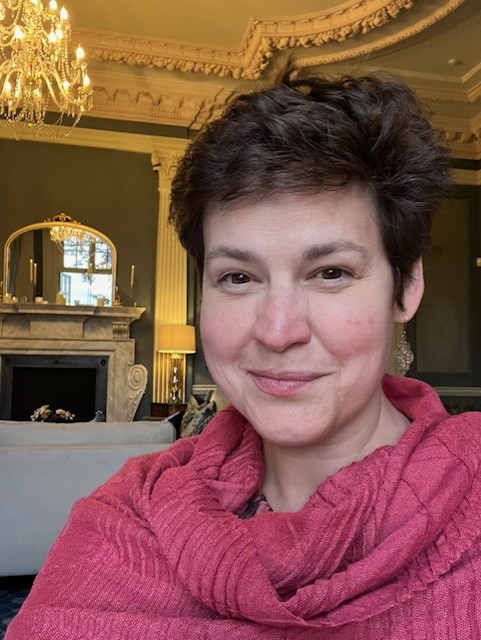
As science improves, people with conditions like mine will be living longer and longer. But the cost of that care is astronomical. We have to be able to continue to make treatments affordable for people, otherwise, we’ll die.
Editor’s Note: This story was updated on March 12, 2025.
Elizabeth is a self-employed real estate agent in northern Virginia. She was diagnosed with Hodgkin’s lymphoma in June 2012. While she has remained largely asymptomatic for the last few years, she has recently begun to experience symptoms like severe night sweats and difficulty standing for more than a few minutes at a time.
In 2013, Elizabeth largely stopped responding to treatment after two rounds of stem cell transplants. Because of the kind of Hodgkin’s lymphoma that she has, she says that she will never be fully cured, but she could enter remission. She started clinical trials for new maintenance drugs and her treatments are only available through a remission expert in New York. While the cost of the medication itself is covered by the trial, the associated costs, which include transportation, bloodwork, and sometimes hospitalizations, are completely on her.
Elizabeth purchases her insurance through the Marketplace. Her plans have been canceled a couple of times, both her premium and out of pocket costs have risen.
Without access to insurance through the Marketplace, and without some of the protections, she says that she could dip into an inheritance for a few months, but then she’d be bankrupt and would eventually stop being able to afford treatment altogether. She’s currently paying $490/month in premiums without any kind of financial assistance, with a high out of pocket cap. She’s especially worried about any removal of protections for people with pre-existing conditions and a guaranteed ban on lifetime caps. “As science improves, people with conditions like mine will be living longer and longer. But the cost of that care is astronomical. We have to be able to continue to make treatments affordable for people, otherwise, we’ll die.”
In February of 2017, Elizabeth transitioned onto her husband’s employer-sponsored insurance in July, 2019. She said that when she logged onto the exchanges this year, for the first time ever, it was more expensive for her to get marketplace insurance than to be on her husband’s. However, the good news is that Elizabeth’s care remained mostly uninterrupted despite the change in insurance. She only had to wait an extra week or two for a specific treatment but other than that there were no hiccups caused by her lapse in coverage. She stayed on her marketplace insurance between the marketplace open enrollment and her husband’s employers.
Elizabeth caught up with Families USA in 2025.
Still managing her Hodgkin’s Lymphoma, she is grateful to still be here fighting and says “I am feeling really powerful and good about my role in the resistance.”
Elizabeth and her doctors have had to cycle through various treatments for her cancer. She counts herself lucky to be able to get coverage through her husband’s employer, but they are still maxing out their HSA every year and putting tons of money toward medical expenses, sharing, “even if the system works how it supposed to work, it is still radically over-expensive.”
From two years of immunotherapy to her current treatment, an oral chemotherapy drug called Everolimus, she has relied on clinical trials or recently approved new treatments to keep her alive for the last 12 years since her diagnosis.
Her biggest concern at the moment is the Trump administration’s policy attempting to cut billions of dollars in funding for the National Institutes of Health’s budget that “would strip research groups of hundreds of millions of dollars to cover so-called indirect expenses of studying Alzheimer’s, cancer, heart disease and a host of other illnesses — anything from clinical trials of new treatments to basic lab research”
While a federal judge on March 5th, 2025, blocked the Trump administration from drastically cutting medical research funding that many scientists say will endanger patients and cost jobs, the threats to this research, the type of research that keeps Elizabeth alive, is enough to fear.
But this fear helps drives Elizabeth in her advocacy work.
“Our society has been developing medications and treatments to keep people alive for decades, and we’ve taken pride in our ability to keep people healthier with longer lives. But that means we have a lot of people living with chronic conditions who maybe need support and can’t provide the same kind of reliably healthy work pool that we had decades ago when sick people just died. And l think that the new administration is saying with these attempts to cut funding that they don’t care about trying to keep sick people alive anymore.”
Add your voice to help us continue to push for the best health and health care for all.
SHARE YOUR STORY